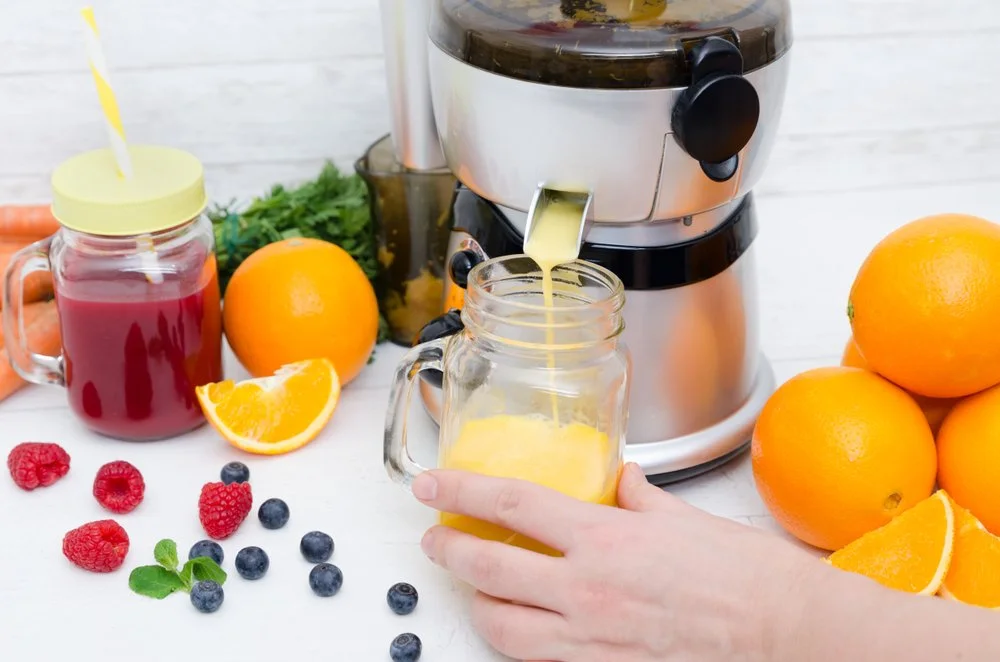A fruit and vegetable-rich diet lowers the risk of heart disease and stroke, protects against certain forms of cancer, and offers fiber, which lowers the risk of obesity, type 2 diabetes, and diverticulosis.
Juicing and Kidney Health
Juicing is being promoted as a way to reduce weight and stay healthy, and while it may appear to be a new trend, it has been around for a long time. As with any diet, there are advantages and disadvantages to consider, especially when it comes to your kidneys.
The Advantages of Juicing
Juicing can help you receive the vitamins and minerals you need without making you feel bloated. According to the United States Department of Agriculture, most adults should consume 1 12 to 2 cups of fruits and 2-3 cups of vegetables every day (USDA). Liquefying your raw food is an excellent way to consume the appropriate portions of fruits and vegetables.
Juicing can also assist kidney health by giving additional fluid to the body, which helps keep it hydrated.
The additional antioxidants found in the fruits and vegetables used to prepare the juice aid in the reduction of inflammation induced by oxidation. Oxidation is a normal bodily process that occurs when oxygen combines with lipids in the blood and cells. Kidney illness increases inflammation and hence oxidative damage in the body. As a result, juicing can help supply additional antioxidants as well as some vitamins and minerals that individuals with renal disease may be deficient, such as B6 and folic acid.
Disadvantages of Juicing
There Are Some Cautions For ANYONE who chooses to employ juicing instead of eating entire fruits and veggies, there are some downsides or cautions to consider:
Fiber is lost. The fiber is lost when the pulp of a fruit or vegetable is removed during the juicing process. Fiber increases stomach size, which lessens hunger, and fiber decreases the likelihood of constipation.
Because fruit and vegetable juices are higher in natural sugar content (called carbs) than whole fruits and vegetables, people with blood sugar problems should limit their intake of many fruit and vegetable juices.
Juicing is not intended to replace all meals for an extended period of time because it does not provide a balanced supply of all the nutrients our bodies require.
For patients with impaired renal function, further precautions should be taken:
People with normal renal function do not need to limit their fluid intake. Fluids may need to be limited for someone with poor renal function, making it difficult to employ juicing to acquire the recommended servings of fruits and vegetables.
Certain nutrients may need to be restricted because the kidneys are incapable of adequately filtering them from the body. Potassium is one such example. Most juicing recipes include potassium-rich fruits and vegetables, such as oranges, bananas, mangoes, strawberries, spinach, and tomatoes or tomato juice, to mention a few. One orange contains roughly 240 mg of potassium, whereas 8 ounces of orange juice provides about 500 mg of potassium after juicing.
Some juicing recipes use for canned tomato or vegetable juice, which is heavy in salt. Many persons with impaired renal function must restrict their sodium consumption.
Many dark green vegetables, such as spinach and kale, are high in vitamin K, which aids in blood clotting. A high dietary intake of vitamin K can contribute to increased blood clotting in dialysis patients or people using blood thinners. If you are considering juicing and have diminished kidney function, you should consult with your renal doctor and/or a dietician beforehand to ensure that it is safe for your unique medical conditions. Your nutritionist can assist you in selecting the safest juicing recipes for your specific needs.
If you are considering juicing and have diminished kidney function, you should consult with your renal doctor and/or a dietician beforehand to ensure that it is safe for your unique medical conditions. Your nutritionist can assist you in selecting the safest juicing recipes for your specific needs.

